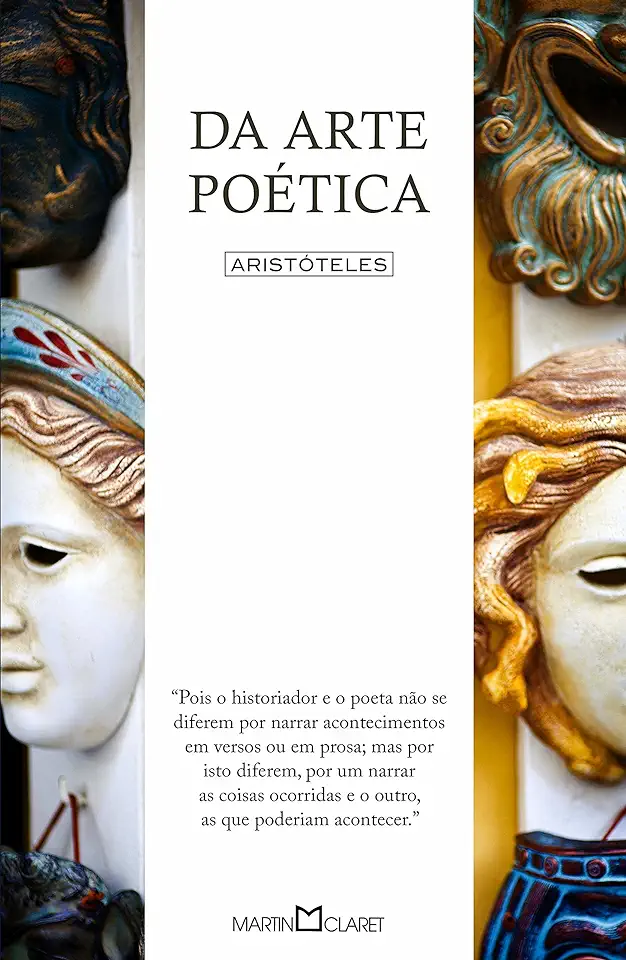
On the Art of Poetry - Aristotle
On the Art of Poetry by Aristotle: A Timeless Guide to Poetic Excellence
Aristotle's "On the Art of Poetry" stands as a seminal work in literary criticism, offering a profound exploration of the nature, elements, and techniques of poetry. Written over two thousand years ago, this treatise remains an indispensable resource for poets, critics, and scholars alike, providing invaluable insights into the art of crafting compelling and effective poetic works.
Understanding the Essence of Poetry
Aristotle begins by defining poetry as "an imitation of life," emphasizing its mimetic nature. He argues that poetry, through its use of language and imagery, imitates human actions and emotions, allowing readers to experience a heightened sense of reality and catharsis. This concept of imitation extends beyond mere representation; it involves the creative transformation of life's complexities into a concentrated and aesthetically pleasing form.
The Six Elements of Poetry
Aristotle identifies six essential elements that contribute to the effectiveness of poetry:
Plot: The plot, or the sequence of events, forms the backbone of a poetic work. Aristotle emphasizes the importance of a well-structured plot that builds tension, creates suspense, and leads to a satisfying resolution.
Character: The characters in a poem embody the human experiences and emotions that drive the narrative. Aristotle discusses the importance of creating complex and relatable characters who evoke empathy and engage the reader's imagination.
Thought: Poetry, according to Aristotle, should convey profound thoughts and ideas that resonate with the audience. He encourages poets to explore universal themes, philosophical insights, and moral lessons within their works.
Diction: The choice of words and the manner in which they are arranged play a crucial role in poetic expression. Aristotle emphasizes the importance of using language that is both clear and evocative, creating vivid imagery and sensory experiences for the reader.
Melody: Aristotle recognizes the musicality of poetry, highlighting the significance of rhythm, meter, and sound patterns in enhancing the emotional impact of the work.
Spectacle: While Aristotle primarily focuses on the literary aspects of poetry, he acknowledges the importance of visual elements in certain poetic forms, such as drama.
The Poetic Genres: Epic and Tragedy
Aristotle dedicates significant attention to two prominent poetic genres: epic poetry and tragedy. He analyzes the characteristics, conventions, and effects of each genre, providing valuable insights into their distinct strengths and purposes.
The Cathartic Power of Tragedy
Aristotle famously discusses the concept of catharsis in relation to tragedy. He argues that tragedy, through its depiction of suffering and misfortune, evokes pity and fear in the audience, leading to a cathartic release of emotions and a sense of purification.
The Poetics: A Legacy of Influence
"On the Art of Poetry" has had a profound and lasting impact on literary theory and criticism. Its principles have shaped the development of Western literature, influencing countless poets, playwrights, and critics throughout the ages. From ancient Greece to the present day, Aristotle's insights continue to inspire and guide those who seek to master the art of poetry.
Why You Should Read "On the Art of Poetry"
If you are passionate about poetry, literature, or the creative process, "On the Art of Poetry" is a must-read. Aristotle's timeless wisdom and insightful analysis provide a roadmap for understanding and appreciating the complexities of poetic expression. Whether you are an aspiring poet, a seasoned writer, or simply a lover of literature, this seminal work will enrich your understanding and deepen your appreciation for the art of poetry.
Enjoyed the summary? Discover all the details and take your reading to the next level — [click here to view the book on Amazon!]